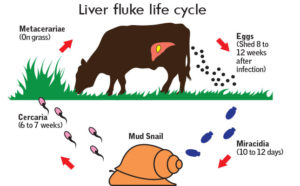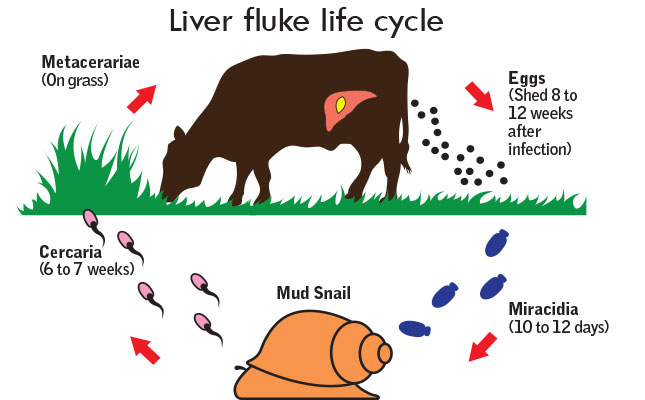New Entrants to Farming: Health Planning – Event Summary
5 March 2018The final of the 2017 / 18 Argyll New Entrant Group meetings was held on Monday 5th March 2018 at the Falls of Lora Hotel, Connel.
Health Planning
Local vet, John Bromfield from Oban Vets, started the meeting with a session on liver fluke.
John explained the life cycle of the fluke and how important it is to remember that ‘fluke activity relates directly to snail activity’.
Fluke can have a detrimental effect on your flock/herd causing a number of other health issues such as toxaemia, clostridal diseases and chronic liver damage. Fluke can also affect barren and live birth rates and cause poor weight gain in lambs and calves. It is therefore hugely important to treat for this parasite.
Fluke snails need wet conditions, above 10˚C to survive. Therefore grazing which is regularly flooded is the perfect habitat for them to thrive. This should be considered when selecting which fields to graze.
Discussions were held on the various fluke treatments and the vet warned that there are now fluke which have become resistant to certain molecules within the drenches.
It is important to be aware if your livestock have become resistant to any of the flukicides and treat accordingly. Fluke resistance should also be considered when livestock are purchased, as if you don’t currently have the resistant fluke, it is not something you wish to bring onto the holding.
Three Key Messages for fluke treatment:
- Remember how the fluke life cycle works- fluke activity relates to snail activity
- Be aware if treatments are working- if you think your flock have built a resistance, carry out dung sampling
- Every farm will have different requirements when treating for fluke but a rough guide is to drench is Autumn, Winter & Summer
Sign up to the FAS newsletter
Receive updates on news, events and publications from Scotland’s Farm Advisory Service


